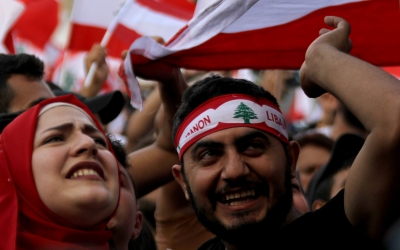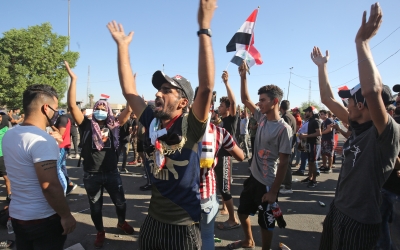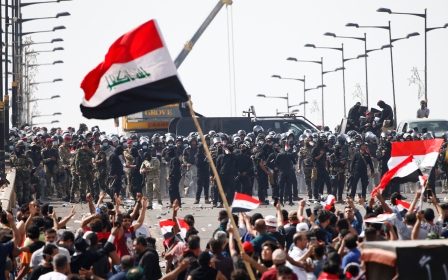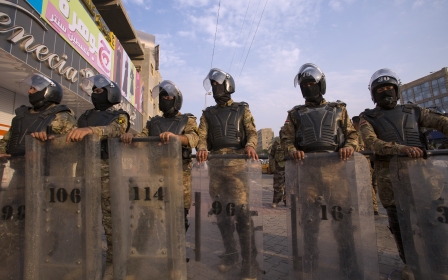'Weed them all out': Protests continue in Iraq's capital as pressure on government swells
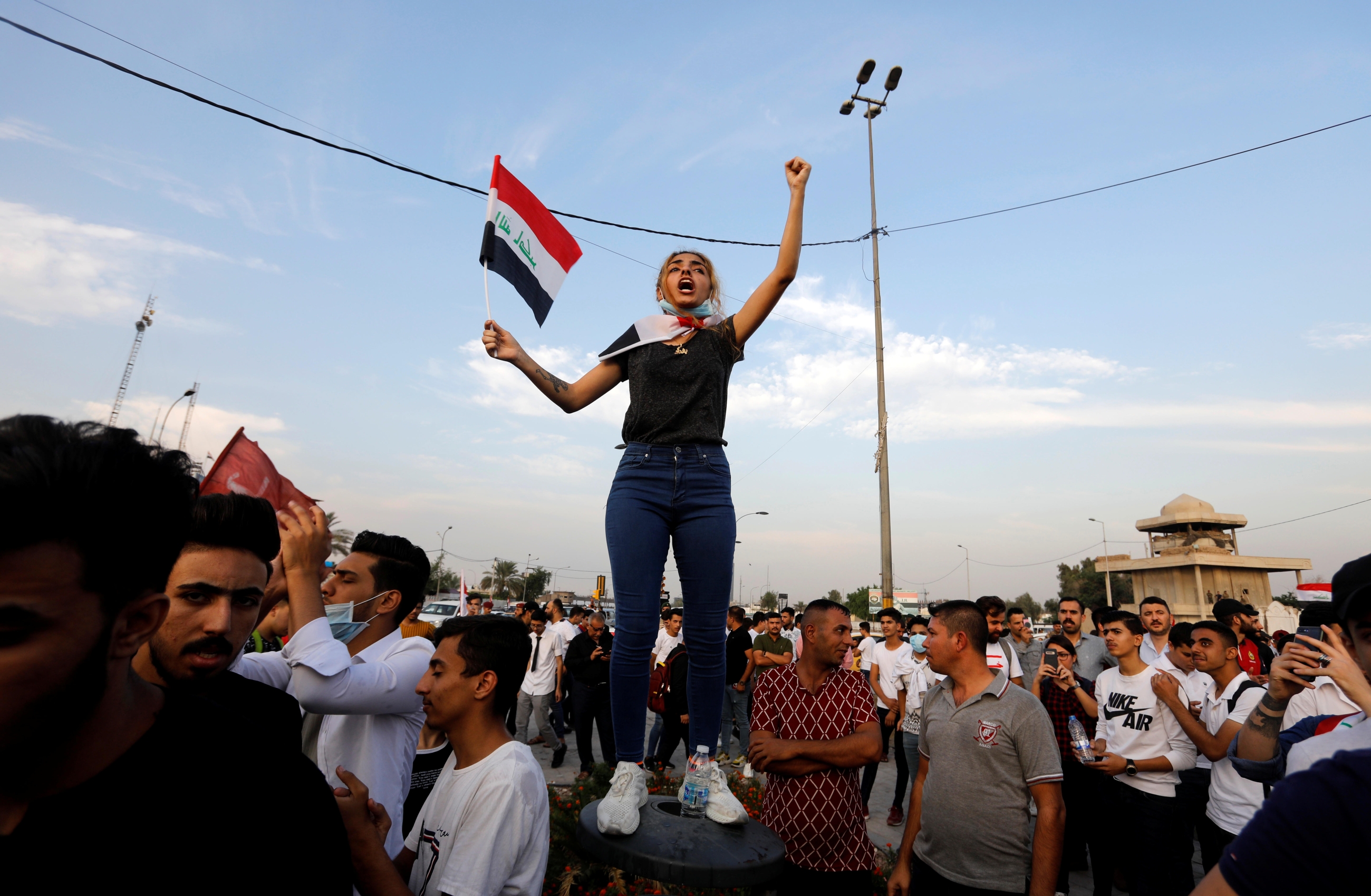
Hundreds of Iraqis remained in and around Baghdad's Tahrir Square on Sunday, defying security forces who continued to fire tear gas at protesters in an effort to disperse them.
The capital and country's south have been rocked by a wave of demonstrations since Thursday, in a bloody crackdown that has left over 60 people dead.
"We're here to bring down the whole government, to weed them all out," one protester was quoted by the AFP news agency as saying.
"We don't want a single one of them. Not [parliamentary speaker Mohammed] Halbousi, not [Prime Minister Adel] Abdul Mahdi. We want to bring down the regime," he added.
Students were also in attendance at Sunday's protest, with activists saying a dozen schools and universities decided to shut their doors and take part in the protests.
According to AFP, young girls in school uniform and rucksacks were seen trekking through streets littered with tear gas canisters.
Iraq's elite counterterrorism service was deployed to protect important state buildings from what it described as "undisciplined elements".
On Saturday, security forces fired tear gas and opened live fire on thousands who tried to reach Baghdad's Green Zone, home to government offices and embassies.
Three protesters were killed when they were struck with tear gas canisters in Baghdad while another three were shot dead in the southern city of Nasiriyah after attacking a local official's home.
Seven million live below the poverty line
The protesters have railed against widespread corruption, unemployment, lack of services and cronyism that has afflicted the country since the 2003 US-led invasion.
They have spread to several mainly Shia-populated southern provinces, with authorities imposing a curfew and shutting down the internet in an effort to quell the unrest.
Some of the demonstrators have directed their anger at Grand Ayatollah Ali al-Sistani, the country's top Shia religious authority, who is deeply revered among most Iraqis.
On Friday, Sistani urged protesters and security forces to show "restraint", warning of "chaos" if violence resumed.
Others have been waiting for a signal from influential populist cleric Moqtada al-Sadr, who has thrown his weight behind the protests.
The protests threatened to plunge the country into a new cycle of instability, barely two years after it declared victory over Islamic State (IS).
Prime Minister Abdul Mahdi, who took office just a year ago, has pledged to address the demonstrators' grievances by reshuffling his cabinet and delivering a package of reforms.
However, the moves have done little to quell the demonstrators, whose ire is also focused on the country's elite, who they say have failed to improve their lives after years of conflict and economic hardship.
According to World Bank figures, around seven million Iraqis lives below the poverty line, and youth unemployment is at 25 percent.
The rates are staggering for OPEC's second-biggest oil producer, which Transparency International ranks as the 12th most corrupt state in the world.
Middle East Eye delivers independent and unrivalled coverage and analysis of the Middle East, North Africa and beyond. To learn more about republishing this content and the associated fees, please fill out this form. More about MEE can be found here.


